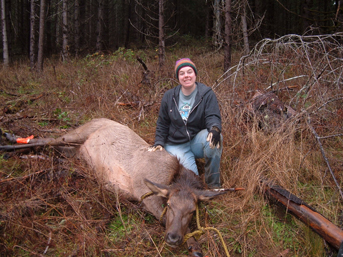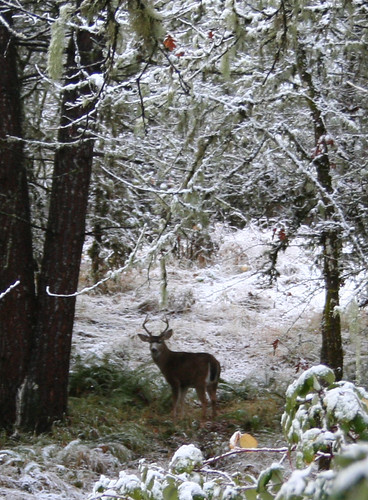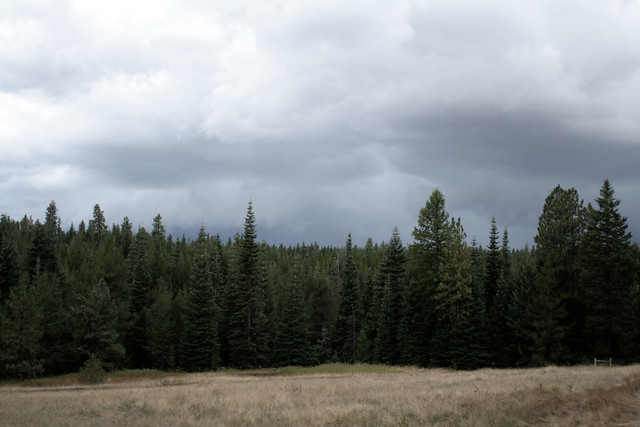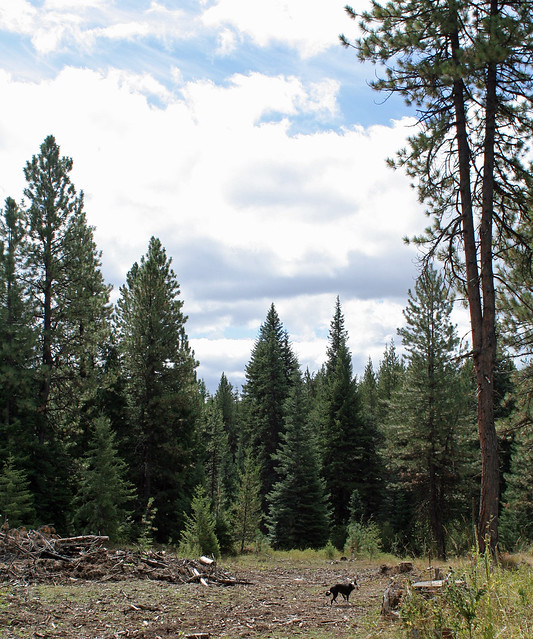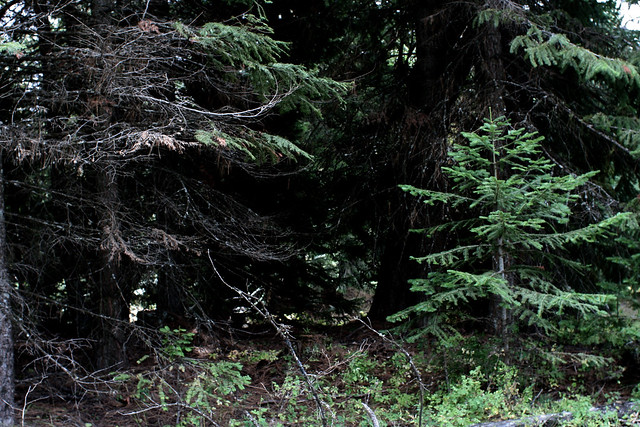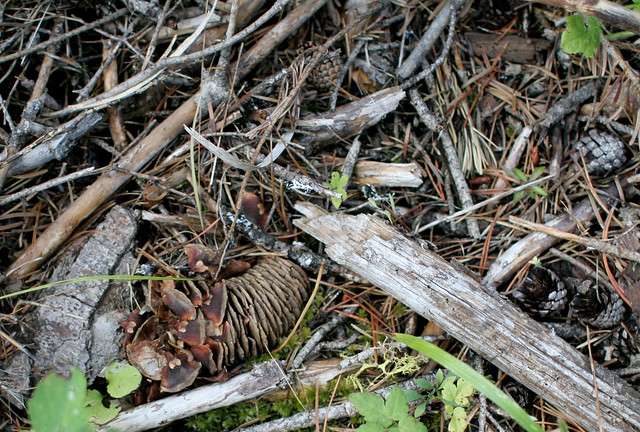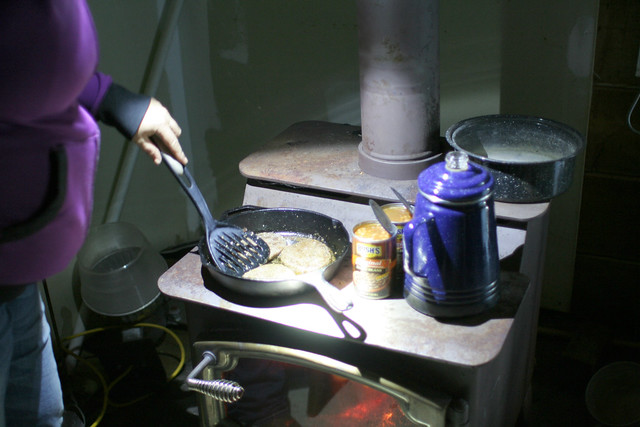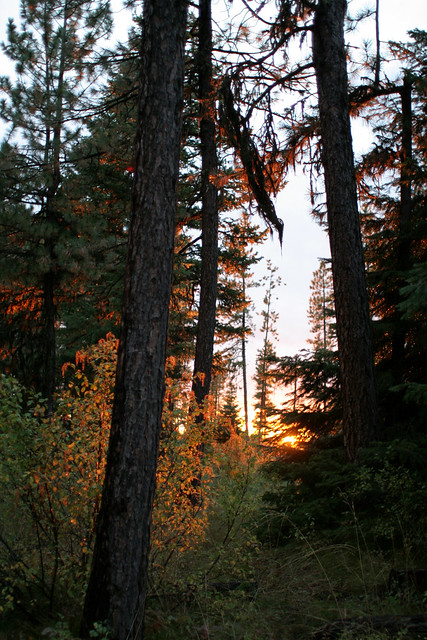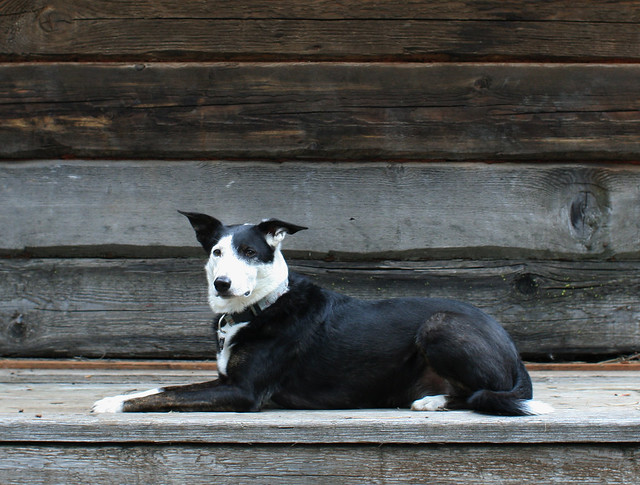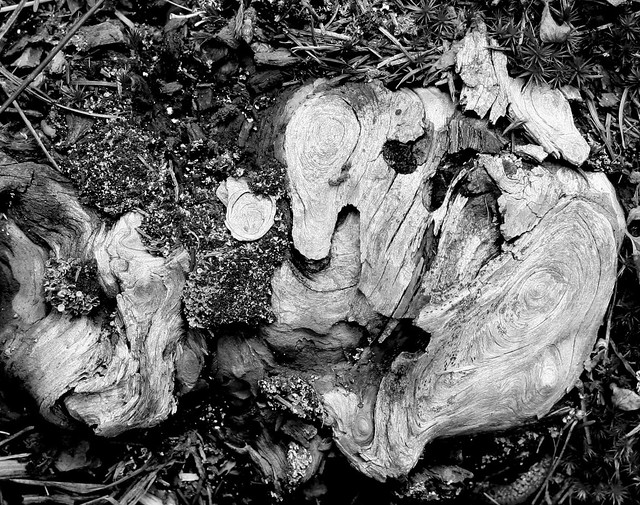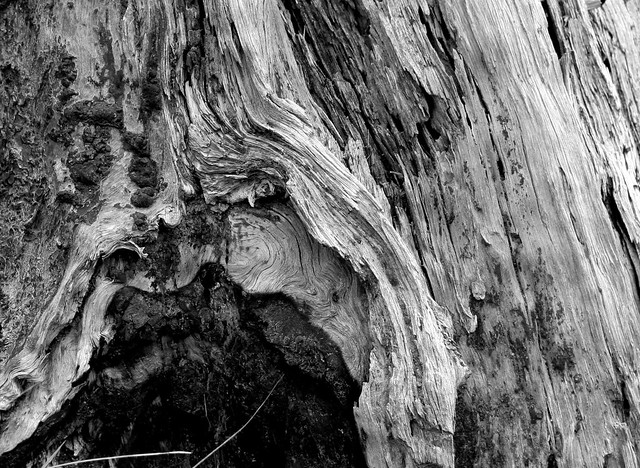I recently had an acquaintance who is a vegetarian and animal shelter volunteer who, after finding out I hunt deer, expressed shock that I would advocate for no-kill shelter policies then turn around and kill other animals. I've run into this sentiment often. So, here: have an essay on why I'm not vegan.
Believe it or not, people like me, who hunt or farm and eat meat, can be just as thoughtful as vegans when it comes to animal welfare. We've just came to different conclusions about humans' relationship with animals.
Meat eaters seem constantly on the defensive when we interact with vegans (and/or act like assholes), and we shouldn't. The
ethical and
environmental concerns of modern large scale animal farms are pretty well-known at this point, though arguably not as mainstream as they should be. No one (except maybe some industry lobbyists) argues that 'factory farming' is awesome and should continue unchecked and
unimproved. And likewise, most people are aware that the American diet
contains waaaay more cow meat than is healthy or needed. We're in agreement on these subjects, just not in their solutions.
The most succinct essay I've seen on the issue is
this one here, written by Jay Bost. Please go read the whole thing, here are some key points:
"The ethical reasons of why NOT to eat meat are obvious: animals are
raised and killed in cruel conditions; grain that could feed hungry
people is fed to animals; the need for pasture fuels deforestation; and
by eating meat, one is implicated in the killing of a sentient being.
Except for the last reason, however, none of these aspects of eating
meat are implicit in eating meat ... eating meat raised
in specific circumstances is ethical; eating meat raised in other
circumstances is unethical. Just as eating vegetables, tofu or grain
raised in certain circumstances is ethical and those produced in other
ways is unethical"
"... If
“ethical” is defined as living in the most ecologically benign way, then
in fairly specific circumstances, of which each eater must educate
himself, eating meat is ethical; in fact NOT eating meat may be arguably
unethical."
"A well-managed, free-ranged cow is able to turn the sunlight captured by
plants into condensed calories and protein with the aid of the
microorganisms in its gut. Sun [to] diverse plants [to] cow [to] human.
This in a larger ethical view looks much cleaner than the
fossil-fuel-soaked scheme of tractor-tilled field [to] irrigated soy
monoculture [to] tractor harvest [to] processing [to] tofu [to] shipping [to] human."
"For me, eating meat is ethical when one does three things. First, you
accept the biological reality that death begets life on this planet ... Second, you combine this
realization with ... compassion and choose
ethically raised food, vegetable, grain and/or meat. And third, you give
thanks."
That sums it up for me. Everyone has to get their protein from somewhere. If you get it from plants you are implicit in the deaths of thousands of birds and small mammals during harvest, habitat loss, and death of arthropods through pesticide use (yes, even in organic farming), not to even speak of the displacement of wild animals from cropland. If you get it from select animal sources, you can at least control the manner of their life and death and ensure it's as good and humane as possible, while also looking out for the environment.
Either way, you are directly responsible for animals dying. Vegans think that because they're not personally pulling the trigger, they get off the hook.
DEAR VEGAN WHO MIGHT BE READING THIS: I AM NOT ATTACKING YOU. if you choose to be vegan because you can't stand the idea of eating something with a face,
that's fine. Or if you're vegan as
part of a life seeking non-violence, more power to ya'. Or, if you find it easier to be healthy by eating mostly plants, I understand. I'm not attacking personal preference here. But I have yet to meet a vegan or vegetarian who
doesn't think they are morally superior to omnivores. I find this a naive, counterproductive, and sometimes dangerous (and personally insulting) sentiment. If you're vegan, you need to understand that your lifestyle is just one of many good ways to live. And if you support
terrorist organizations in your bid to encourage a vegan lifestyle, I will fight you on that.
I also have mixed feelings farm animal sanctuaries. (If you didn't know, they're animal rescues that specialize in livestock, mostly from factory farms or abusive conditions, and provide them with care for the rest of their natural lives, sometimes adopting them out as pets.) They are overwhelmingly founded and run by people who are also vegan/vegetarian and usually act as a sort of political backdrop to promote the vegan lifestyle and to fundraise for animal rights organizations such as PETA.
Unfortunately, these promotions usually center on showing us stupid meat-eaters that chickens are cute and have feelings and friends, and WOW didn't you LEARN something today boys and girls!? Thanks, but this isn't the 1940's, there is conclusive and exhaustive scientific evidence that livestock animals are beautiful complex creatures with rich social lives. You might be educating some ignorant city folk who think eggs pop into existence in a grocery store, but to hunters and farmers this is old news .
On the one hand, they seem mostly harmless. Some animals get to have really nice lives, some people get to feel good about themselves. It's a beneficial relationship that doesn't do direct harm to anyone (except arguably the land they use, but I'll get to that in a moment).
On the other hand, it seems like a waste of money, energy, and land. These are food animals, I don't see anything wrong with using them for food. It was the
condition of their former lives that should be considered unacceptable, not the mere fact that they were going to end up as food.
Many of these places were converted from former working farms. The land could instead be used as a real, working farm providing ethical meat and vegetables to the local community. Part of me wants these animal-lovers who fund and run these sanctuaries to spend that money on, for example, dogs and cats in under-performing shelter systems, and leave the farmland in the hands of someone like the
Salatin family who could raise some ethical, environmentally friendly food instead of wasting in on pets.
It begs the question: the vegans running these farms obviously find the living conditions
their animals acceptable. Why then, if the same types of animals are living in nearly identical conditions on a working farm, but they happen to be used for food instead of dying of old age, why isn't
that acceptable to vegans? (See:
pigs at a sanctuary versus
pigs at a humane meat farm).
Probably because....
Most vegans see all death as inhumane, no matter how it occurs
See the
comments on this post, for just a few examples. The vegan commenters don't care if a cow dies slowly (bleeding out while conscience) or instantly (via boltgun). It's death itself they don't like.
I can't even begin to understand this mindset. On a personal level, I've worked as a vet tech assisting in euthanasias of companion animals; as a hunter of large game animals; and as a pseudo-hobby-farmer helping to kill and slaughter sheep. I have close personal experience with the various ways an animal can die that many people today lack. Most animal lovers agree: all deaths are not equal. We should always be conscience of making animals' lives as good as possible; killing them humanely is a big part of that, whether it's a food animal or not.
What's stranger is that vegans' hate of death doesn't extend to pets. Many vegans are pet owners, take their pets to the vet like everyone else, and seem to universally agree that there is such a thing as humane vs. inhumane euthanasia (injection of barbiturates is OK, gas chamber is not OK, for example). They even think there's such thing as humane euthanasia in farm animals who have grown old or sick or injured. Why can't it be possible for humane death in an animal who's body is then used for food?
Most people in the veterinary profession, and in fact
all professional veterinary organizations, agree that bolt-gun or bullet to the head
is as humane as euthanasia by lethal injection of pentabarbitol. If a vegan is really being logical, than they have to admit there is no difference between euthanizing a beloved pet at the vet, and shooting a cow in the head. It might be more disturbing to think about, but, suffering-wise, there's no difference.
Now, you can argue philosophically that we don't have the
right to kill (or exploit) animals, no matter whether it's humane or not. That's a separate issue from the claim that all death is inhumane. My
opinion is that humans have as much right to kill animals for food as we do to live at all ("exploitation" would take an entire separate post/book to discuss, as there are many conflicting philosophies and definitions). You can't
exist on this planet without causing death, directly or indirectly. If you're thoughtful, and want to live as (pick a buzzword) sustainably, ethically, humanely, etc... as possible, one way of doing that is eating animal products.
The author appreciates animals as individuals, as a species, and as food.


